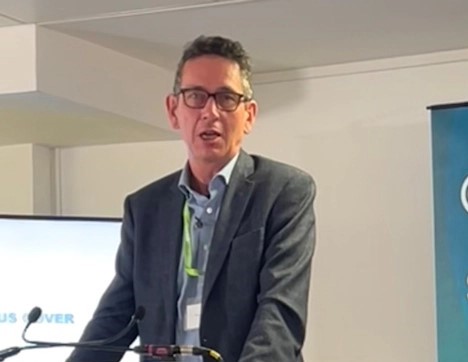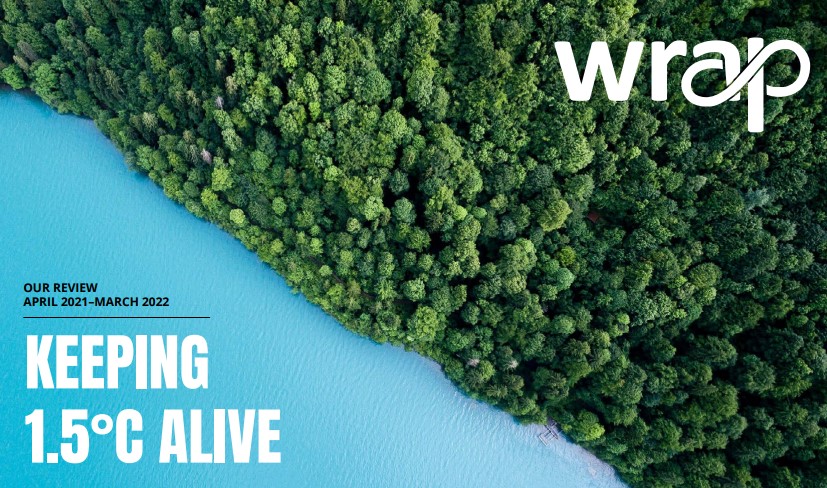Meanwhile, it also published its annual review for April 2021 to March 2022, dubbed ‘Keeping 1.5°C Alive’, yesterday (28 September).
The charity, which receives funding from Defra, the Welsh Government and Daera in Northern Ireland, published its accounts for the 2021/22 financial year on Companies House last month (2 August).
According to the accounts, the increase stems from international income of £900,000, business contributions of £400,000 and ‘other’ government funding of £3.6 million including a £3.3 million contribution from non-departmental public body UK Research and Innovation.
In total, WRAP received core grant funding from Defra of £9.7 million, £4.3 million from the Welsh Government and £1 million from Daera in 2021/22.
Commenting on the results, WRAP’s chair Julie Hill and CEO Marcus Gover said in a joint statement: “This has been a year of considerable achievement and progress for WRAP on many fronts, despite the challenging environment.
“As we write, a pandemic is being followed by a war. The net zero narrative that had been gaining such extraordinary political and public support is under attack from some quarters in the face of rising energy bills and increases in the cost of living. There may well be further fallout from the pandemic.
“Against this backdrop, our teams continue to step up to the challenges.”
Emissions
In the annual report, WRAP says it wants to become “truly global” by exporting its flagship programmes, including the Courtauld 2030 and Textiles 2030 initiatives and The UK Plastics Pact.

The charity said it would hold conversations with organisations including governments and global brands at the COP27 climate summit in Egypt this November, where it would emphasise the need to “fix” global systems for food, clothes and goods to stop climate change.
Mr Gover said WRAP worked in just three countries outside the UK when he began his role in 2016, whereas now it worked in 40.
“Renewable energy and electric vehicles alone will not save us. Our economy doesn’t run purely on energy,” Mr Gover said.
“We need to tackle non-energy emissions and the emissions from producing our food and goods, in the UK and abroad. Nearly half of global greenhouse gas emissions come from the production and consumption of food and goods.”
Mr Gover will leave his role at the end of the year (see letsrecycle.com story). He told letsrecycle.com in the wake of COP26 last year that consumption was the “key issue” with regard to emissions (see letsrecycle.com story).
Looking forward
Looking to the future, WRAP said its “top priority” was to decarbonise the food and drink system by providing a roadmap for the sector to halve UK greenhouse gas emissions. To achieve this, WRAP says, it is “critical” that businesses tackle their supply chain emissions. The charity plans to develop and test a methodology which will establish a UK standard practice for measuring these emissions.
We need to tackle non-energy emissions and the emissions from producing our food and goods
- Marcus Gover, WRAP CEO
WRAP also says it “remains committed” to providing policy and technical support to national and local governments to reach higher rates of recycling and a more circular economy. Its work with local authorities will see it “support the adoption of improved collections across England and Wales”, which will include the use and delivery of recycling campaigns and communications.
2021/22
Reflecting on 2021/22, WRAP says it completed its 2019/22 delivery of Resource Action Fund grants, awarding a total of £12.5 million to 398 organisations in England. The projects funded will divert up to 150,000 tonnes of waste from landfill, WRAP claims.
And, in Wales, WRAP completed its 2019/22 delivery of grants under the Circular Economy Fund, awarding more than £4 million to 21 organisations.
With regard to plastics, WRAP published data on the relationship between food waste and plastic packaging and called on retailers to “step up” (see letsrecycle.com story).
It also reached the halfway point of its UK Plastics Pact Targets for 30 and reported a 46% reduction in “problematic and unnecessary” plastic items.
However, the results of WRAP’s Sustainable Clothing Action Plan 2020 showed it fell short of a target to reduce textile waste by 15% (see letsrecycle.com story).











Subscribe for free